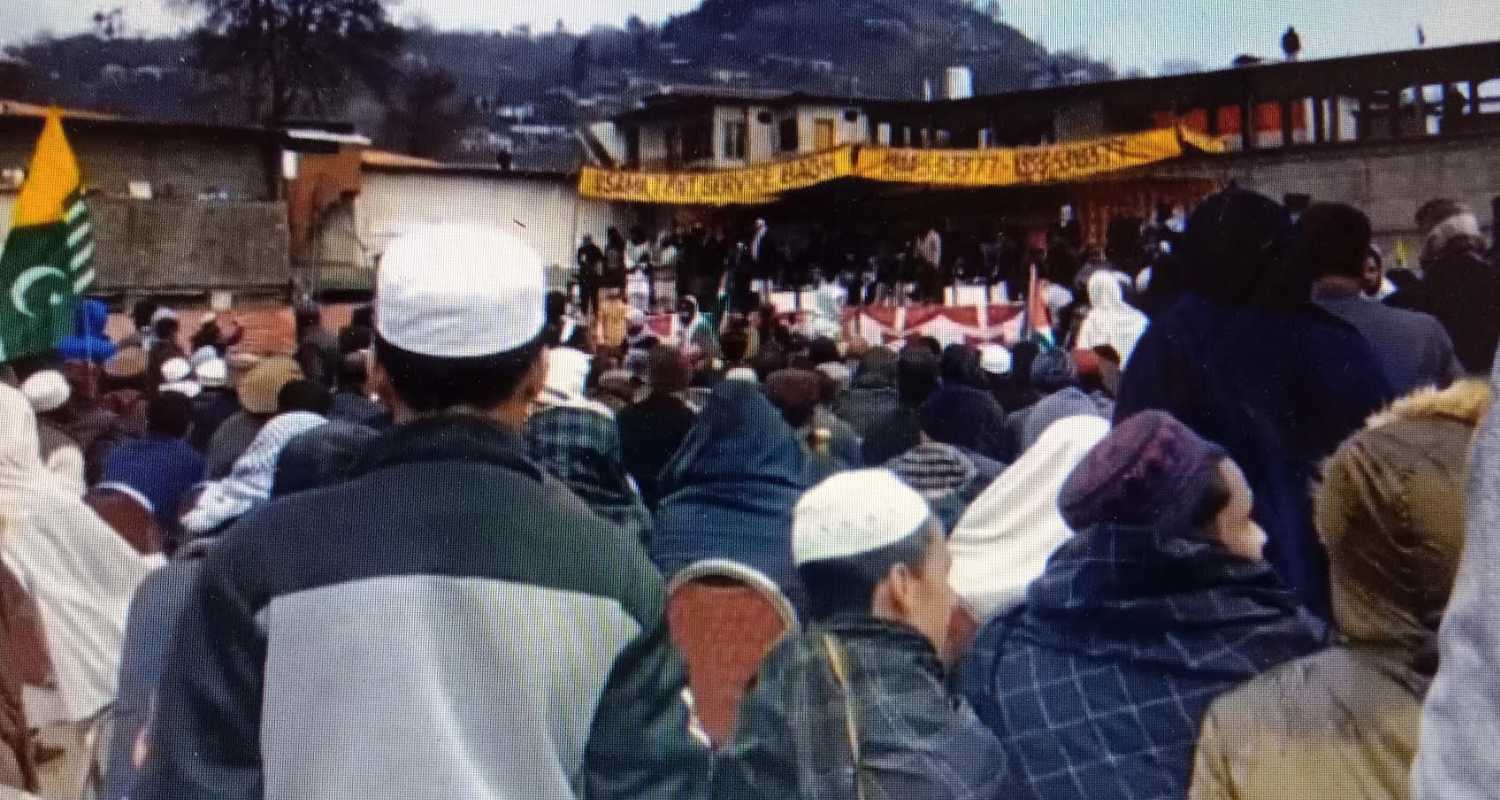More than two months before the brutal Pahalgam attack that claimed the lives of 26 tourists in Jammu and Kashmir, Indian intelligence agencies had uncovered disturbing developments—a first-ever joint conference between Hamas and Pakistani terror groups, reportedly organised under the supervision of Pakistan’s Inter-Services Intelligence (ISI) in Pakistan-occupied Kashmir (PoK).
The clandestine gathering, held in Rawalkote on February 5, was described by officials as an anti-India platform promoting violence and separatism, with open calls to intensify the campaign to break Kashmir away from India.
Despite receiving credible intelligence about the nature and scale of the event, Indian security agencies failed to act in time—a lapse which, officials now say, may have prevented them from stopping the Pahalgam massacre.
At the center of the February event was a high-profile appearance by Khalid Al-Qadoumi, Hamas’s representative in Iran. His visit marked Hamas's first known presence in PoK, where he attended the ‘Kashmir Solidarity and Hamas Operation Al Aqsa Flood Conference’ at Shaheed Shabir Stadium. The Hamas delegation received a lavish welcome, with flower petals showered on them as they entered the venue—escorted by militants from Jaish-e-Mohammad (JeM) and Lashkar-e-Taiba (LeT).
Present at the event was Maulana Fazlur Rehman, head of Jamait Ulema-e-Islam (F), a prominent Islamist political party in Pakistan known for its fundamentalist leanings. The conference, according to officials, was a striking display of solidarity between Middle Eastern and South Asian terror outfits.
Indian intelligence agencies later accessed video footage showing Hamas operatives arriving in SUVs, accompanied by JeM and LeT cadres riding motorcycles and even horses, waving Hamas flags in a coordinated display of militant unity.

Among the top terrorist figures seen at the event were Talha Saif, brother of JeM chief Masood Azhar, and Jaish commander Asgar Khan Kashmiri. Their presence raised immediate red flags about the growing strategic alignment between Hamas and Pakistan-based terror networks.
A senior Jaish member who addressed the gathering openly declared the formation of a new alliance between Hamas and South Asian jihadist groups. “The Mujahideen of Palestine and Kashmir have united. It’s time to shed blood in Delhi and separate Kashmir from India,” he declared, issuing what officials now interpret as a direct incitement to acts of terrorism.
“This was far more than a symbolic event,” said a senior Indian intelligence officer. “It was a clear signal of Hamas’s entry into the South Asian theatre, orchestrated and facilitated by Pakistan’s ISI. It was a declaration of a new front against India.”
The conference was strategically held on Kashmir Solidarity Day, an annual occasion in Pakistan that has long been used to stoke anti-India sentiment. On the same day, Pakistan Army Chief General Asim Munir delivered a speech in Muzaffarabad, claiming that “all of Kashmir would one day be part of Pakistan.”
This came even as Prime Minister Shehbaz Sharif issued more measured diplomatic remarks advocating a peaceful resolution to the conflict—remarks Indian officials have labeled “hypocritical” in light of the military's aggressive tone.
In the days leading up to the Pahalgam attack, General Munir made provocative religious statements, drawing sharp contrasts between India and Pakistan’s ideologies and praising those engaged in violent struggle in Kashmir.
Now, in hindsight, intelligence officers believe that the Pahalgam massacre was a calculated consequence of the strategies discussed during the February conference. “There was actionable intelligence, and had it been acted upon, it’s possible lives could have been saved,” one official admitted, describing the failure as a serious lapse.
The brutal attack in Baisaran Valley is now seen not as an isolated incident but as a result of a broader, coordinated terror strategy involving Hamas, JeM, LeT, and ISI. The event has reignited concerns over Pakistan’s role in exporting terror, and the growing risk posed by international terror collaborations aimed at escalating the Kashmir conflict on a global scale.
Also Read: India-Pakistan border at Suchetgarh closed for civilians



